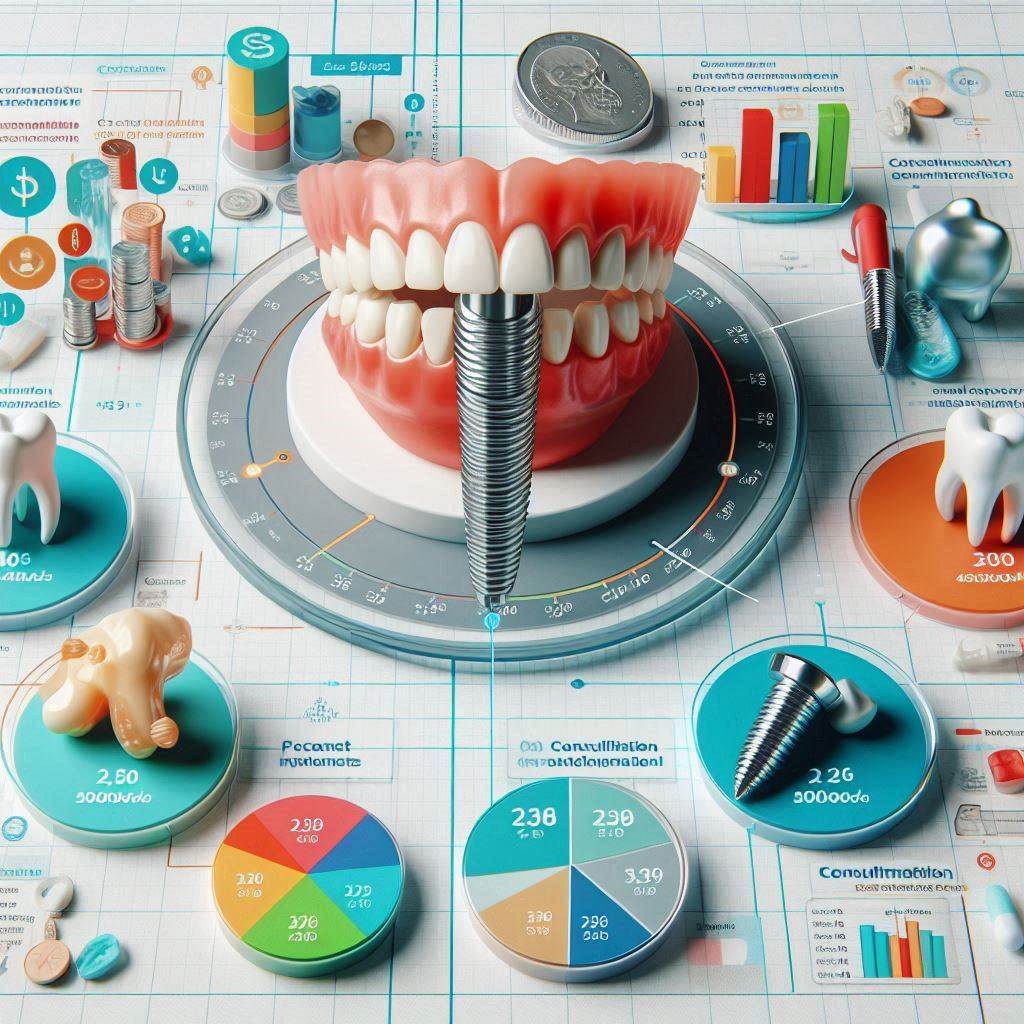Dental Implant Cost Breakdown
A radiant smile is more than just a confidence booster—it’s a reflection of your overall health. For those missing one or more teeth, dental implants have emerged as the gold standard in restorative dentistry. However, the cost of dental implants often raises eyebrows and questions. Why are they so expensive? What exactly are you paying for? And are they worth the investment?
This article delves deep into the dental implant cost breakdown, providing a detailed, professional, and engaging analysis of every component that contributes to the final price. Whether you’re considering dental implants for yourself or simply curious about the process, this guide will equip you with the knowledge to make informed decisions.

What Are Dental Implants?
Dental implants are artificial tooth roots made of biocompatible materials like titanium. They are surgically placed into the jawbone to support replacement teeth, such as crowns, bridges, or dentures. Unlike traditional dentures or bridges, dental implants offer a permanent solution that mimics the look, feel, and function of natural teeth.
The process involves multiple stages, including consultation, surgery, and follow-up care, each contributing to the overall cost. Understanding these stages is crucial to comprehending the financial investment required.
Why Are Dental Implants So Expensive?
Dental implants are a significant financial commitment, often ranging from 1,500to1,500to6,000 per tooth or more. The high cost is attributed to several factors:
- Advanced Technology: The materials and equipment used in dental implant procedures are cutting-edge and expensive.
- Specialized Expertise: Implant dentistry requires extensive training and experience, which justifies the higher fees charged by skilled professionals.
- Customization: Each implant is tailored to the patient’s unique anatomy, ensuring optimal fit and function.
- Longevity: Dental implants are designed to last a lifetime, making them a cost-effective solution in the long run.
Dental Implant Cost Breakdown
To fully understand the cost of dental implants, let’s break down each component:
1. Initial Consultation and Diagnostic Costs
Before any procedure, a thorough evaluation is necessary. This includes:
- Comprehensive Exam: 100–100–300
- X-Rays and 3D Imaging: 150–150–500
- Treatment Planning: 200–200–500
These diagnostic tools help the dentist assess bone density, gum health, and overall suitability for implants.
2. Surgical Costs
The surgical phase involves placing the implant into the jawbone. Costs include:
- Surgeon’s Fees: 1,000–1,000–3,000
- Anesthesia: 200–200–800
- Operating Room Fees: 500–500–1,500
3. Implant Material Costs
The implant itself is a major expense. Prices vary based on the brand and type:
- Standard Implants: 1,000–1,000–2,500
- Premium Implants: 2,500–2,500–4,000
4. Abutment and Crown Costs
The abutment connects the implant to the crown, while the crown serves as the visible tooth. Costs include:
- Abutment: 300–300–600
- Crown: 1,000–1,000–3,000
5. Additional Procedures
Some patients require preparatory procedures, such as:
- Bone Grafting: 500–500–3,000
- Sinus Lift: 1,500–1,500–5,000
- Tooth Extractions: 100–100–500 per tooth
6. Follow-Up and Maintenance Costs
Post-surgery care is essential for long-term success. This includes:
- Follow-Up Visits: 100–100–300 per visit
- Professional Cleanings: 100–100–200 annually
Factors Influencing Dental Implant Costs
Several variables can affect the total cost of dental implants:
- Geographic Location: Urban areas and developed countries tend to have higher prices.
- Dentist’s Expertise: Experienced specialists may charge more for their services.
- Type of Implant and Brand: Premium brands like Nobel Biocare or Straumann come at a higher price.
- Complexity of the Case: Severe bone loss or multiple missing teeth increase costs.
- Dental Insurance and Financing: Some plans cover part of the cost, while others offer payment plans.
Comparing Dental Implant Costs Globally
| Country | Average Cost per Implant (USD) |
|---|---|
| United States | 3,000–3,000–6,000 |
| Canada | 2,500–2,500–5,000 |
| Mexico | 1,000–1,000–2,500 |
| India | 800–800–1,500 |
| Thailand | 1,200–1,200–2,000 |
Many patients opt for dental tourism to save on costs, but it’s essential to weigh the risks and benefits.
Is the Cost of Dental Implants Worth It?
While the upfront cost of dental implants may seem daunting, their long-term benefits often outweigh the expense. Implants prevent bone loss, improve oral health, and enhance quality of life. Compared to alternatives like dentures or bridges, implants offer superior durability and functionality.
How to Save on Dental Implant Costs
- Shop Around: Compare quotes from multiple providers.
- Consider Dental Schools: Procedures performed by students under supervision are often cheaper.
- Explore Financing Options: Many clinics offer payment plans or discounts.
- Check Insurance Coverage: Some plans cover part of the cost.
FAQs About Dental Implant Costs
Q1: Does insurance cover dental implants?
A: Some plans cover part of the cost, but coverage varies. Check with your provider.
Q2: How long do dental implants last?
A: With proper care, implants can last a lifetime.
Q3: Are there cheaper alternatives to dental implants?
A: Yes, options like dentures and bridges are less expensive but less durable.
Q4: Can I get dental implants if I have bone loss?
A: Yes, but you may need a bone graft, which adds to the cost.
Conclusion
Dental implants are a life-changing investment in your oral health and confidence. While the cost may seem high, understanding the breakdown and long-term benefits can help you make an informed decision. With proper research and planning, achieving a radiant smile is within reach.
Additional Resources
- American Academy of Implant Dentistry
- International Congress of Oral Implantologists
- Dental Implant Cost Calculator


